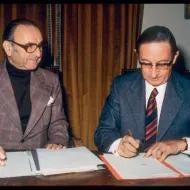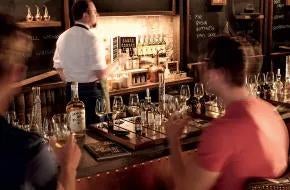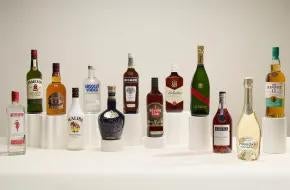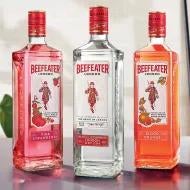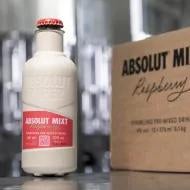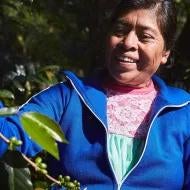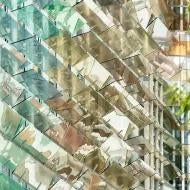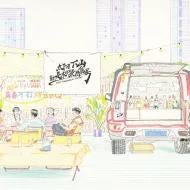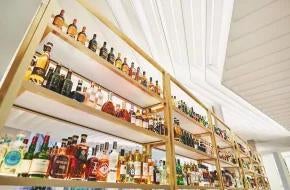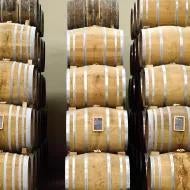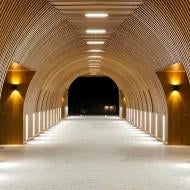Packaging is one of the most carbon-intensive activities in our value chain. That’s why Pernod Ricard has committed to ensuring that 100% of its packaging is reusable, recyclable or compostable by 2025. We are looking at ways of reducing the carbon intensity of packaging through redesign and experimenting with new materials.
Packaging is one of the most carbon-intensive activities in our value chain. That’s why Pernod Ricard has committed to ensuring that 100% of its packaging is reusable, recyclable or compostable by 2025. We are looking at ways of reducing the carbon intensity of packaging through redesign and experimenting with new materials.
Innovation in circular design
We foster a circular mindset and apply our five principles: Rethink, Reduce, Reuse, Recycle and Respect across the business. When we're designing and creating packaging, we're thinking of the whole product lifecycle - the resources needed to produce packaging, how it will be distributed and how it will be disposed of.
Some examples are an innovative paper bottle project launched by the Paper Bottle Company in partnership with multiple partners including The Absolut Company as part of their Future of Packaging programme; and Maison Perrier-Jouët are embracing eco-design to challenge conventional premium packaging to unite both beauty and sustainability.
Innovating in packaging is crucial to minimising our environmental impact. Like Absolut, Perrier-Jouët and Beefeater, all our brands are committed to this approach. This is about limiting waste and preserving our natural resources by reusing, reimagining, recycling and reducing, adopting a truly circular mindset.
Perrier-Jouët’s Ecobox
Maison Perrier-Jouët has evolved in symbiosis with nature - Pierre-Nicolas Perrier and Rose-Adélaïde Jouët, a young couple united by their love of art and nature, were known as botanists and horticulturists and introduced progressive ideas on natural viticulture in the 19th century to the champagne house.
Today, Maison Perrier-Jouët has an ambition for their entire gifting offer to be eco-designed by 2022. They are exploring ways to combine art and nature to make their outer packaging and to reuse by-products of vinification in different ways. In 2020, the prestige champagne brand launched a new eco-designed gift box, entirely made of natural fibers that are sourced from FSC-certified forests after two years in research and development.

Perrier-Jouët Ecobox
Eco-Conscious Design
Designed and developed in France, the Eco-box combines elegance and sustainability in a lightweight, minimalistic and fully recyclable gift box. The consciously minimalist design utilises a single material (natural fibres) and limits the printed area to just 3% of the total surface area to limit ink consumption.
The Eco-box is also made with ink and glue that are free from mineral oils. And, at 30% lighter than the previous box, there is a reduction in environmental impact over the entire logistic chain, from Champagne region to our consumers around the world.

Absolut Paper Bottle prototype
Absolut Paper Bottle
The Absolut Company (TAC) Future of Packaging programme is a long-term commitment from the TAC brands that encompasses all their packaging. Close collaboration with their glass manufacturer means Absolut bottles contain more and more recycled glass content while maintaining the clarity of iconic Absolut bottle. The Swedish vodka brand is also looking beyond glass to produce bottles from sustainably sourced wood fiber to create an innovative recyclable paper bottle.
The first Absolut Paper bottle prototype was launched in September 2020 to challenge the mindset of consumers and players across the spirits industry. It marks the brand’s first step to developing a fully bio-based bottle strong enough to contain spirits. Paper was chosen as the key material because it is easily recyclable within established systems.
Design Collaboration
Absolut worked on the paper bottle project with start-up Paboco (Paper Bottle Company) and other leading FMCG companies including Coca Cola, Carlsberg, P&G and L’Oréal Europe who share the same challenges in developing bio-based and recyclable paper packaging. The collaboration encourages innovation, ensures the paper bottles’ scalability, and generates more reliable and diverse consumer insights.
The first-generation prototype of the Absolut paper bottle consists of biodegradable FSC-certified paper with a barrier of recycled plastic that can easily be separated and recycled separately by recycling companies. The prototype is made of fully recyclable content - 57% paper and 43% recycled plastic. The plastic makes up a thin layer within the bottle that can be recycled. There is a plan to encourage closed-loop recycling for these bottles where they can be returned to the point of sale.
As the technology evolves, the paper content will increase, and the barrier will be integrated into the bottle and replaced by a bio-based material. Consumers will then be able to recycle as with any other kind of paper.
We’re allowing ourselves to truly think outside the box, both in terms of design and sustainability.
Getting customers on board was vital - an initial batch of the 2,000 Absolut paper bottles were made available in the United Kingdom and Sweden, and the response was positive. They showed real interest in recycling the bottle and recognised the high level of innovation in the bottle design, which aligned with their expectations of the Absolut brand. A second generation of paper bottle is in development that dispenses with the thin plastic barrier of the first generation.
Tags
On the same topic
-
Absolut Vodka and Ardagh Group co-invest in hydrogen-fired glass furnace in a global spirits industry first
Read moreAnnouncement follows a landmark partnership with Glass Futures, following the successful production of Pernod Ricard’s Jameson bottles using biofuels
-

Chivas Brothers: carbon neutral distillation by 2026
Read moreTransforming the industry through groundbreaking distillation technology at Chivas Brothers
-

Pernod Ricard India – Water Conservation Projects
Read more





